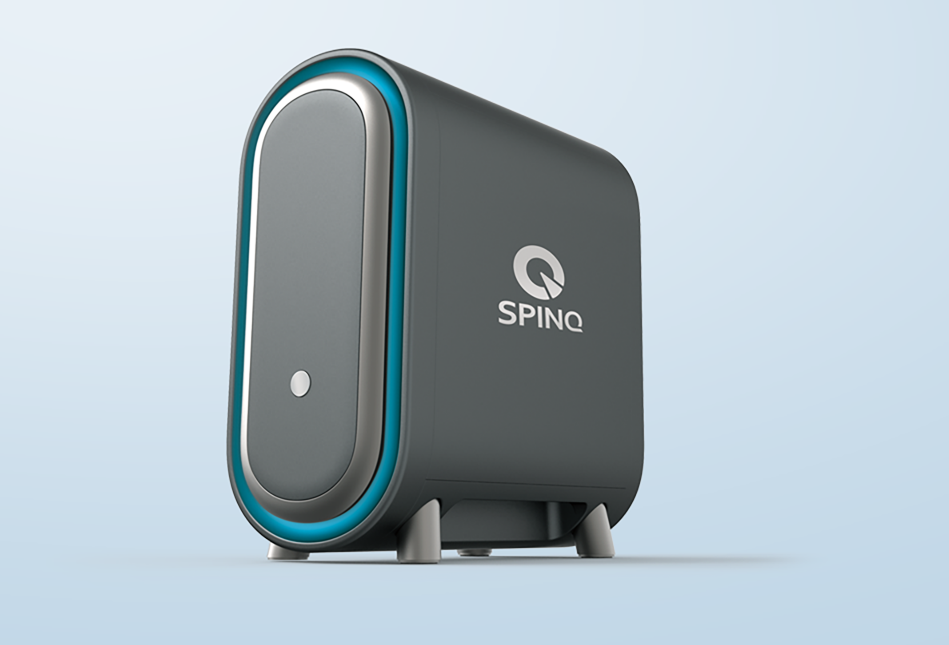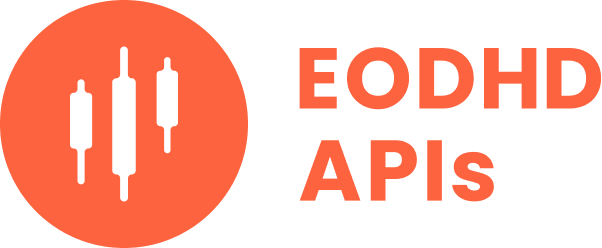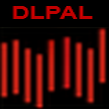
Quantum Computing as the Means to Algorithmic Trading
The topic of quantum computing has been gaining popularity recently, and both the scientific community and investors seem to have high hopes for its future. It seems that this brand-new technology could revolutionize various aspects of computing as we currently know them. Great contributions could be made in the fields of medicine and healthcare, security, and computability [1], as well as in the field of finances, which interests us here at Quantpedia the most. Quantum computers are especially great in optimization tasks, so optimizing a portfolio could be one of the key contributions in our interest. [2] In this article, we would like to introduce the concept of quantum computers, their current state, their potential use in finance, and more.
What is a quantum computer?
First things first – what is a quantum computer, and how does it differ from a classical one? To understand the potential of quantum computers, understanding what they are themselves is essential. Since quantum computers aren’t an extension of classical computers but rather an entirely new type of machine, this question needs to be answered before tackling their potential for finance research.
To put it simply, to a normal computer the basic unit of information is a bit, which can gain values 0 or 1. So when it computes a task, it only works with strings of 0s and 1s. On the other hand, the basic unit of (quantum) information in quantum computers is a qubit. There is a radical difference, as a qubit represents not a 1, not a 0, but rather a combination of both at once. This is called the superposition of a particle encoding that qubit in the computer’s hardware. It might be hard to imagine at first, especially if one is unfamiliar with quantum physics. Down on an atomic level, particles don’t behave the way the “large” objects we encounter in daily life do. Therefore topics utilized in quantum computing like superposition (particle being in multiple states at once), quantum entanglement (particles seemingly communicating over great distances in a speed that seems to be faster than light), and others might appear very obscure. To leave out the technicalities, since qubits allow for a different kind of computation, we can solve traditional problems on them in a new, different way.
If a problem is very complex, it might be nearly impossible even for a classical supercomputer to solve it. However, with the help of quantum algorithms, this might be changed in the future. Such a case is, for example, integer factorization, which underlies a significant part of modern data encryption. Or the problem of portfolio optimization in finance. In both cases, the point is that there are simply too many possibilities for the computer to go through, resulting in an overwhelming computation time (could be tens or thousands of years of running time). On the other hand, instead of considering every single possibility, (i.e. every subset of assets we are choosing from to form the portfolio) as a classical computer does, quantum algorithms take a different approach through multidimensional spaces, where the patterns linking individual data points emerge. [3]
Problems of quantum computing
So the quantum computers can do similiar things like classical computers, and are much faster. This sounds more than great, but there is a small catch. OK, more than one 🙂
Most of the time, a quantum computer’s overperformance is still formulated as hypothetical or predictive. Quantum computers are still in the phase of development. At the time of writing this article, the largest superconducting quantum processor, the Eagle by IBM, has 127 qubits, which is nowhere near the number of qubits it would take to do most of the revolutionary ideas researchers have in mind. For example, to crack the RSA-2048 protocol, one would need an estimate of 20 million qubits[4]. For now, IBM’s official plan is to scale up the number of qubits year by year[5].
Those are not the only problems though. Quantum computers have to be cooled down to very low temperatures – as cold as outer space – to function properly.
Moreover, there are different architectures quantum computers can have – there is no ultimate universal architecture so far that can solve any computational problem, and the particles have to be entangled in a specific way to calculate a specific problem. So we might still be some years away from the quantum revolution in computing.
Buying and working on a quantum computer?
On the other hand, some companies and start-ups have already started working on publicly available quantum computers. There is a possibility to buy one, and it’s not even “that” expensive. A Chinese start-up SpinQ Technology offers a desktop quantum computer for just under $5000.

However, as it has only 2 qubits, it is mainly aimed at schools and colleges, it’s more for those who want to research and familiarize themselves with the concept. With 2 quibits, we can optimize portfolio that consists of 2 assets, but nothing more.
https://epjquantumtechnology.springeropen.com/articles/10.1140/epjqt/s40507-021-00109-8
https://www.spinquanta.com/products-solutions/gemini
https://www.discovermagazine.com/technology/a-desktop-quantum-computer-for-just-usd5-000
There are also other ways to enter the world of quantum computing. Companies like IBM, Google, and D-Wave have their quantum computers available through cloud systems. So if you visit sites such as:
https://quantumai.google
https://quantum-computing.ibm.com
https://www.dwavesys.com/solutions-and-products/cloud-platform/
it is possible to gain access to cutting-edge quantum processors and work on them. For example, the latest D-Wave quantum annealer has more than 5000 quantum bits and is available for access through their cloud. Another alternative is using programming languages that simulate quantum computing, such as Microsoft’s Azure Quantum (https://learn.microsoft.com/en-us/azure/quantum/) which might be sufficient for some applications, even though it is not equal to running a program on the quantum computer itself.
Quantum computing and research in quantitative trading
In this last section of our article, we would like to offer an overview of these few recent studies on the topic of quantum computing. The papers for further reading are always linked below the title.
Quantum Computing for Finance: State of Art and Future prospects
https://arxiv.org/abs/2006.14510
In this study written by Daniel J. Egger et al. from IBM Computing, the authors offer a thorough introduction to quantum computing in finance. It is a very good, detailed article.
In the first part, they offer an introduction to quantum computers, ranging from “basic” information about qubits to a more detailed description of the calculating process in such computers. Then they name some of the problems in finance they consider solvable by quantum computers, and for each of them they present such an algorithm.
These are optimization problems, machine learning problems, and simulation problems, where traditional Monte Carlo algorithms used with classical computers could be substituted by a more efficient quantum algorithm called Amplitude Estimation, thanks to which the running time speeds up quadratically. They conclude by naming a few challenges quantum computing will have to face. Overall, this paper is a great outline of quantum computing.
Portfolio Optimization of 60 Stocks Using Classical and Quantum Algorithms
https://arxiv.org/abs/2008.08669
In this next research, the authors Jeffrey Cohen, Alex Khan, and Clark Alexander compare classical and quantum approaches to portfolio optimization on a 60-stock portfolio. The study is an extension of their previous research, where they tested a sample of 40 stocks. In future, even larger portfolios might be studied.
The task of finding an optimal portfolio from 60 stocks means that there are 2 to the power of 60 choices to be considered. From the classical methods, the authors consider Fat Tailed Monte Carlo Analysis, Genetic Algorithm, Simulated Annealer, D-Wave Tabu MultiStart MST2 Sampler, and D-Wave Hybrid Samples, all of which have running times under 1 minute. The quantum method considered is done using D-Wave Systems Quantum Annealer. This method has running time of 0,13 seconds. Almost all methods were able to find the ideal solution in the study (all besides D-Wave Tabu Sampler, and the D-Wave Hybrid Sampler). The authors conclude that on average, the D-Wave system seems to pick out the portfolios that are leading the efficiency, as can also be seen on the following graphs from the paper:


Portfolio Optimization Using the D-Wave Quantum Annealer
https://www.iccs-meeting.org/archive/iccs2021/papers/127470042.pdf
The problem of portfolio optimization has many variants. The authors Frank Phillipson and Harshil Singh Bhatia focus on one explicit formulation of the problem – portfolio optimization variant with a single objective, maximizing the expected return and under budget and risk constraints. They find that the problem can be solved by the commercial solvers (they choose two solvers and two meta-heuristics) and compare the solutions to the hybrid approach using the D-Wave quantum annealer. The results of the hybrid approach are, according to the authors, promising, and despite quantum computing still being in the early stage of development, the result of this hybrid method was already able to give a reasonably good performance. The study was done for S&P500 and Nikkei225 indexes. In the first part the authors also give a great overview of literature, including many references to many other papers, including the research mentioned in the above paragraph.
Quantum Portfolio Optimization with Investment Bands and Target Volatility
https://arxiv.org/abs/2106.06735
This last research by Samuel Palmer et al. (2021) also focuses on the topic of quantum portfolio optimization. In their study, however, the authors show how to implement investment bands, and how to target specific volatilities. They manage to then calculate optimal portfolios for the full samples of S&P100 and S&P500. In the first step, they explain how to target an optimal investment portfolio with fixed volatility. Then, how to impose investment bands in the computed portfolios. They do so by running a hybrid method on a D-Wave quantum annealer.
Conclusion
The literature on the topic of quantum computing in finance is expanding by the day. In regard to finances and portfolio optimization, but not limited to these topics, quantum computing has created a big hype in the community. While maybe a bit overblown in some of the media, the quantum computers definitely present a future revolution of computing. While they may never entirely replace classical computers, it has been hypothesized that they will likely exist alongside them, used for different types of tasks. A quantum computer might not be ideal for doing day-to-day tasks such as computer browsing or working on a spreadsheets. However, they almost surely will be faster at solving very complex problems. None of them are at this stage yet, but as we watch the quantum race among the big companies such as Google, IBM, and also China, which is investing a lot of money into research in this field, we might witness great breakthroughs in a feasible time of a few years into the future. For now, as per the studies linked above, the research in portfolio optimization using hybrid methods seems to be the most promising in short-term horizons.
Author:
Ivana Dragonova, Quant Analyst
References:
[1] https://uwaterloo.ca/institute-for-quantum-computing/the-future-is-quantum
[2] https://arxiv.org/abs/2006.14510
[3] https://www.ibm.com/topics/quantum-computing
[4] https://arxiv.org/abs/1905.09749
[5] https://newsroom.ibm.com/2022-05-10-IBM-Unveils-New-Roadmap-to-Practical-Quantum-Computing-Era-Plans-to-Deliver-4,000-Qubit-System
Other references:
https://en.wikipedia.org/wiki/Quantum_computing
https://www.technologyreview.com/2019/01/29/66141/what-is-quantum-computing
https://research.ibm.com/blog/127-qubit-quantum-processor-eagle
https://www.investopedia.com/terms/q/quantum-computing.asp#citation-10
https://www.newscientist.com/article/2297583-ibm-creates-largest-ever-superconducting-quantum-computer/
https://www.science.org/content/article/ibm-promises-1000-qubit-quantum-computer-milestone-2023
https://jackkrupansky.medium.com/what-is-a-universal-quantum-computer-db183fd1f15a
https://newsroom.ibm.com/2021-11-16-IBM-Unveils-Breakthrough-127-Qubit-Quantum-Processor
Are you looking for more strategies to read about? Sign up for our newsletter or visit our Blog or Screener.
Do you want to learn more about Quantpedia Premium service? Check how Quantpedia works, our mission and Premium pricing offer.
Do you want to learn more about Quantpedia Pro service? Check its description, watch videos, review reporting capabilities and visit our pricing offer.
Are you looking for historical data or backtesting platforms? Check our list of Algo Trading Discounts.
Would you like free access to our services? Then, open an account with Lightspeed and enjoy one year of Quantpedia Premium at no cost.
Or follow us on:
Facebook Group, Facebook Page, Twitter, Linkedin, Medium or Youtube
Share onLinkedInTwitterFacebookRefer to a friend

















